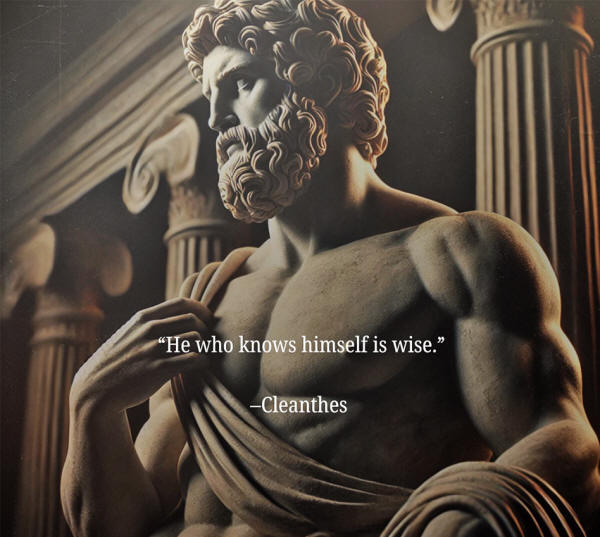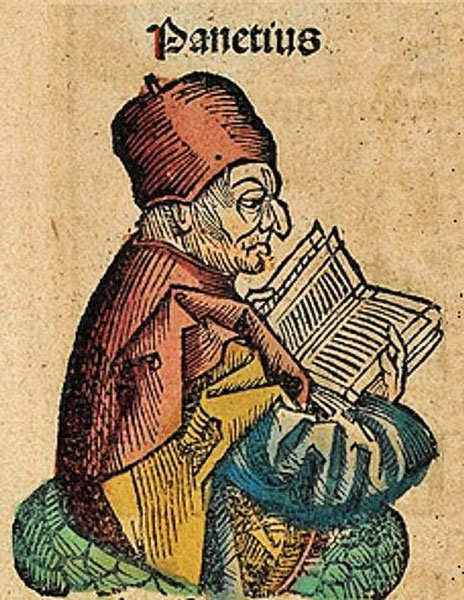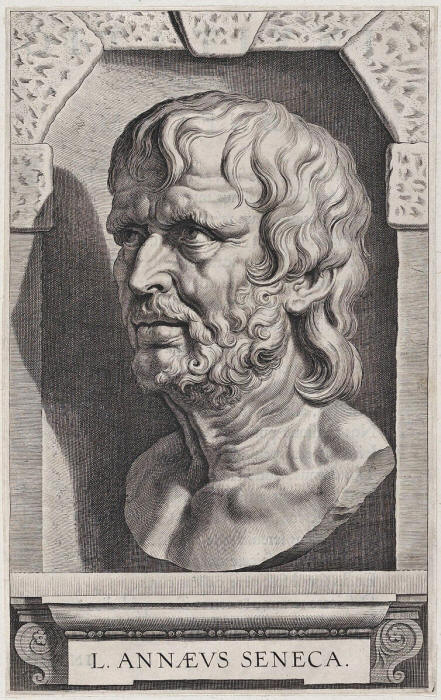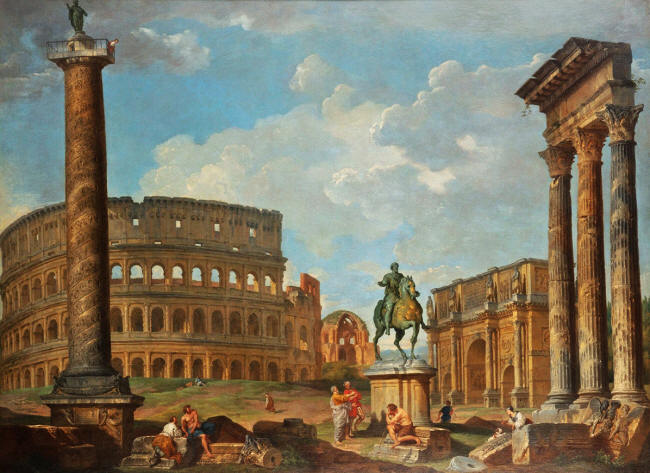|

by Allan John
...of
What Is Stoicism?
June 20, 2025
from
ClassicalWisdom Website

Cleanthes
In Plato's Apology, Socrates talks of his life's
purpose being to,
"fulfill the philosopher's mission of
searching into myself and others."
Indeed, to "know yourself" was seen as one of the
highest pursuits in ancient Greece. And it's this searching that is
vital if we're to really know ourselves.
Socrates, seen by most as the godfather of Western philosophy
and from whom the Stoics took great inspiration, never wrote any of
his thoughts down.
Every day, he wandered around Athens, engaging
people in conversation. He questioned people relentlessly, seeking
to help them get to the heart of their own beliefs.
It was personal growth through the beauty of dialogue and deep
thinking, the kind of conversations that neither participant would
forget in a hurry.
When was the last time you had one of those...?
Stoicism
The history of
Stoicism is usually divided into
three phases:
-
the Early Stoa
-
the Middle Stoa
-
the Late Stoa
It's from the Late Stoa that most
surviving texts come, and for that reason the most well-known
ancient Stoics today are,
...who all lived during that period.
Although we don't have much of their original work, we do still know
useful details about earlier Stoics thanks to the people (such as
Cicero) who wrote about them.
One example of a lesser-known, yet important, Stoic philosopher is
Panaetius of Rhodes.
Panaetius was instrumental in introducing Stoic
doctrines to Rome and when he later returned to the Stoic school in
Athens he became its last undisputed scholarch.

Panaetius of Rhodes
Perhaps Panaetius's key contribution to Stoicism was establishing
the idea that everyone has four roles, or personae, that make up
their identity.
The best source we have for learning about these roles is the Roman
philosopher Cicero, who wrote about them in his work, On
Duties.
They can be summarized as follows:
-
Universal human nature:
the rational and social nature each of us
has as human beings.
-
Individual character:
our unique talents and dispositions, our
likes and dislikes, our traits and mannerisms.
-
Circumstances and social roles:
our specific positions in society, such
as profession or family roles, as well as where we live and
our influence and means.
-
Self-chosen role:
the path we deliberately choose for
ourselves based on our values, aspirations, and the
knowledge we acquire.
All four roles of these roles combine to
determine our moral obligations, responsibilities, and the steps we
will take in our journey toward eudaimonia, which is the
Greek term Stoics used to refer to,
a state of being that we tend to translate as
"happiness," "flourishing," "fulfillment," "well-being," or the
"good life."
This might get you thinking about your four
roles.
How do they combine on your journey toward
eudaimonia?
Where are you Stretching your own
Boundaries?
Reading, wrote Seneca, is indispensable:
It nourishes the mind and refreshes it when
it is wearied.
The value of reading, to anyone seeking personal
growth, can hardly be overstated.

Seneca
It enables us to learn quickly what others have spent years
researching, challenges our beliefs, and frees us from the
limitations of what we didn't previously know.
How consistently are you picking up books that
challenge you and contribute to your mental freedom?
So as promised, let's expand a little on what Panaetius (and Cicero)
wrote, so that you might be able to examine your roles and how they
work together.
Here are some philosophical searches you might wish to conduct in
the process of knowing yourself better:
-
Know your roles and how to fulfill
them
So you can be the best version of that role (e.g. son,
daughter, mother, father, sister, brother, friend, etc)
possible
-
Know what you know and what you don't
So you can keep learning and developing your wisdom
-
Know what your desires are and how you
formed them
So you know what you really want and when you have
enough
-
Know what you're comfortable with and
what you're afraid of
So you can develop courage by facing your fears
-
Know what you're doing too much of and
what you're not doing enough of
So you can develop self-discipline by making rational
choices
-
Know the philosophy by which you want
to live
And review your actions each day to know
where you're doing well and where you need to improve.
So you can live with purpose and help others to
do the same
In this process of knowing yourself, it can be helpful to decide who
you are and work backward from there. Define the principles that
make you that person, and make decisions according to them.
Soon enough, when you look in the mirror in the
morning and ask yourself who you are, you'll have a pretty good
idea.
Are you being Authentic?
Related to all this self-reflection, we might also want to think
about our own authenticity when it comes to defining our roles.
Authenticity, as it relates to personality, seems like a simple
enough concept. We say a person is being authentic when they're
being themselves - when they're enacting their honest response to a
situation.
A layer of complexity is added, however, when we examine the
motivations behind someone's seemingly honest, authentic actions.
Are their actions actually guided by the
pressure of societal norms or what others will say about them?
If so, can this be considered truly
authentic?
Does it even matter?

by Giovanni Paolo Panini
Marcus Aurelius offers us some excellent advice on this exact
issue, and it's advice we can readily use to cultivate our own
authenticity:
Do not waste the time you have left thinking
about others unless it serves some good and useful purpose, for
it takes you away from other work.
Thinking about what so-and-so is doing, and
why, and what someone else is saying, and what another is
thinking or planning, and all things of that sort, causes you to
wander away from the observance of your own governing
principles.
Marcus Aurelius
Meditations
3.4
Marcus's advice here helps us to remove any
complexity from the concept of authenticity.
To be ourselves becomes a simple (but not always
easy) matter of defining our own roles and our governing principles
and acting according to them, regardless of what anyone else says or
does.
|





